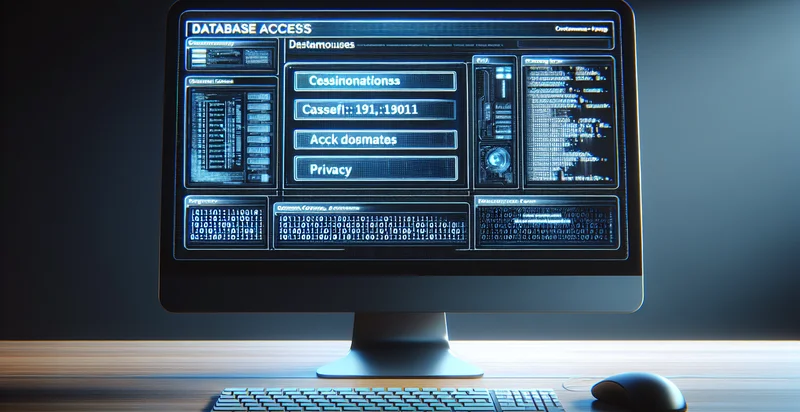Identify if database credentials are in binary
using AI
Below is a free classifier to identify if database credentials are in binary. Just input your text, and our AI will predict if the credentials are securely stored - in just seconds.

Contact us for API access
Or, use Nyckel to build highly-accurate custom classifiers in just minutes. No PhD required.
Get started
import nyckel
credentials = nyckel.Credentials("YOUR_CLIENT_ID", "YOUR_CLIENT_SECRET")
nyckel.invoke("if-database-credentials-are-in-binary", "your_text_here", credentials)
fetch('https://www.nyckel.com/v1/functions/if-database-credentials-are-in-binary/invoke', {
method: 'POST',
headers: {
'Authorization': 'Bearer ' + 'YOUR_BEARER_TOKEN',
'Content-Type': 'application/json',
},
body: JSON.stringify(
{"data": "your_text_here"}
)
})
.then(response => response.json())
.then(data => console.log(data));
curl -X POST \
-H "Content-Type: application/json" \
-H "Authorization: Bearer YOUR_BEARER_TOKEN" \
-d '{"data": "your_text_here"}' \
https://www.nyckel.com/v1/functions/if-database-credentials-are-in-binary/invoke
How this classifier works
To start, input the text that you'd like analyzed. Our AI tool will then predict if the credentials are securely stored.
This pretrained text model uses a Nyckel-created dataset and has 2 labels, including Contains Database Credentials and Does Not Contain Database Credentials.
We'll also show a confidence score (the higher the number, the more confident the AI model is around if the credentials are securely stored).
Whether you're just curious or building if database credentials are in binary detection into your application, we hope our classifier proves helpful.
Related Classifiers
Need to identify if database credentials are in binary at scale?
Get API or Zapier access to this classifier for free. It's perfect for:
- Database Security Audit: This use case focuses on enhancing the security posture of an organization by detecting if sensitive database credentials are stored in binary format. By regularly running this identifier, security teams can proactively uncover and mitigate risks associated with credential exposure.
- Compliance Monitoring: Organizations that are subject to data protection regulations can use this function to ensure compliance with industry standards. The identifier can help identify instances where database credentials may not adhere to best practices, thereby facilitating regular audits and compliance reporting.
- Incident Response Preparation: In the event of a data breach, security teams can utilize this function to quickly assess whether stored database credentials were improperly handled. This insight can streamline the incident response process, allowing for faster remediation and containment of any potential vulnerabilities.
- DevOps Practices Improvement: Development and operations teams can use this identifier during the continuous integration/continuous deployment (CI/CD) pipelines to check for insecure storage practices. Identifying credentials in binary format early in the development lifecycle can lead to more secure coding practices and reduce the risk of future vulnerabilities.
- Legacy System Modernization: Organizations looking to modernize their legacy systems can employ this function to identify security weaknesses in their existing database configurations. By detecting binary-stored credentials, they can prioritize refactoring efforts to improve overall system security and reduce technical debt.
- Training and Awareness: IT departments can leverage this functionality to create training modules aimed at raising awareness about best practices for credential management. By showcasing the risks associated with binary storage of sensitive database information, teams can foster a culture of security mindfulness.
- Third-party Software Evaluation: When incorporating third-party software solutions, this identifier can be employed to evaluate their security practices, particularly concerning credential storage. By confirming whether database credentials are securely stored or potentially exposed in binary format, organizations can make informed decisions about vendor security.


